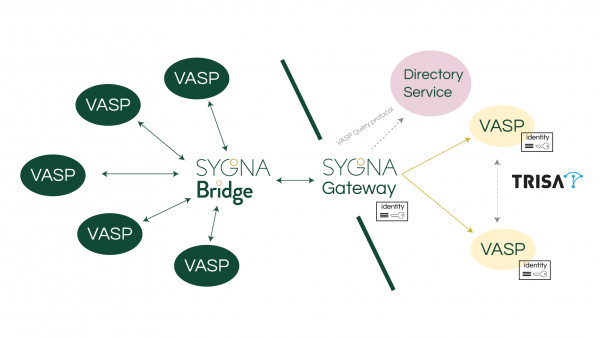Introduction
On 1 June 2023, an important new piece of legislation came into effect that will redefine the crypto-crazy East Asian giant’s relationship with digital assets. Japan’s Virtual Asset Service Providers (VASPs) will need to adhere to the Financial Action Task Force’s (FATF) Recommendation 16, popularly known as the ‘Travel Rule’.
With this, Japan is stepping into a new phase of regulation within the cryptocurrency sector, with significant adjustments to its anti-money laundering (AML) rules. These regulations represent a significant step in bringing Japan’s crypto-legal landscape into alignment with global standards.
Though these changes might seem overwhelming, Sygna is at the forefront. As the world’s first-to-market Travel Rule solution in 2019, we have had our finger on the pulse of regulations in jurisdictions like Japan and Singapore for a number of years. We are well-positioned to offer superior strategic solutions with our strategic partners like Shyft Network and as part of our Sygna Hub and Gate modular AML platforms to simplify compliance with the Travel Rule for VASPs in Japan
Over 70% of Japanese VASPs are utilizing Sygna at present. Please check the list of Sygna Alliance members on this page (https://www.sygna.io/client/). Regarding the threshold information, please be informed that there will be “No More Threshold” after the local Travel Rule comes into force on June 1st, 2023. For any inquiries or further assistance, we also encourage readers to utilize the “Contact us” template on our website (https://www.sygna.io/contact_us/) or click the “Book a demo” button.
FYI, it appears that there is still no public information available from JVCEA or JFSA regarding the “No More Threshold” information.
According to the AML/CFT Guideline for Japanese Crypto Assets Exchange (暗号資産交換業に係るマネー・ローンダリング及びテロ資金供与対策に関する規則) supplemental Provision #2 “Transitional Provision” (附則第2条 “経過規定”) the following is the latest on the threshold:
- The target transaction for Travel Rule in Japan was temporarily set in the 4 conditions below – (1) JPY 100,000 as threshold (2) BTC & ETH only (3) Same Originator and Beneficiary = “A-to-A” Transaction (4) Transaction among Local VASPs
- This target transaction was applicable from April 1st, 2022 to the Revised Act on Prevention of Transfer of Criminal Proceeds (改正犯罪収益移転防止法) as the Travel Rule came into force
- Since June 1st 2023, all conditions of the target transaction have been terminated and Japanese VASPs must comply with the TR Laws without any conditions including the threshold.
Embracing Global AML/CFT Standards: The Emergence of the Travel Rule in Japan
In a bid to meet FATF’s recommendations, Japanese lawmakers have revamped their regulations, enforcing stricter AML rules for cryptocurrency transactions. This regulatory change enables the government to trace digital asset transactions effectively, significantly boosting its ability to counteract illicit activities within the crypto sector.
The key element of this regulatory shift is the enforcement of the ‘Travel Rule’, which requires service providers to identify the sender and receiver of a crypto transfer. This information accompanies each transaction, covering a broad range of digital assets from cryptocurrencies like Bitcoin to fiat-pegged stablecoins.
A comprehensive overhaul in Japan’s cryptocurrency regulation landscape has been in process since March 2021, when the Financial Services Agency (FSA) asked the Japan Virtual Currency Exchange Association (JVCEA) to formulate self-regulatory guidelines related to the “Crypto Travel Rule.”
In Japan, the regulation of cryptocurrency falls under the jurisdiction of the FSA, which holds the primary regulatory authority over Virtual Asset Service Providers (VASPs). It works in collaboration with two self-regulatory organizations (SROs) in Japan’s cryptocurrency industry to ensure regulatory compliance and oversight in the Japanese cryptocurrency market. These SROs are the JVCEA and the JSTOA:
- The Japan Virtual Currency Exchange Association (JVCEA) is responsible for establishing rules and policies that apply to cryptocurrency exchanges.
- The Japan Security Token Offering Association (JSTOA) focuses specifically on token offerings and other crowdfunding events.
Over a year-long period, the JVCEA successfully incorporated these directives in April 2022. This achievement triggered an evolution in the country’s legal framework for cryptocurrencies, culminating in the amendment of the Act on Prevention of Transfer of Criminal Proceeds (APTCP) in December 2022, which enforced the Crypto Travel Rule.
Taking a further step towards clarity, the FSA initiated a public consultation on how the newly introduced Travel Rule impacts Virtual Asset Service Providers (VASPs), reflecting the FSA’s commitment to fostering transparency and open dialogue within Japan’s burgeoning crypto ecosystem.
By March 2023, the FSA’s consultations on APTCP guidelines concluded, leading us to the present time in June 2023.
| Timeline of Regulatory Action |
|---|
| March 2021: |
| JVCEA received a Request for Notification of Originator and Beneficiary Information upon Crypto Assets Transfer (“Request”) from the Financial Services Agency (FSA). The Request mentioned that JVCEA should introduce self-regulatory rules regarding the crypto Travel Rule by April 2022. |
| April 2022: |
| JVCEA introduced the Travel Rule in the Self-Regulatory Rules of the Association for VASPs. |
| December 2022: |
| The Cabinet Secretariat promulgated an amendment to the APTCP to enforce the crypto Travel Rule. |
| February 2023: |
| The FSA launched a public consultation on APTCP guidelines. Interested parties had until March 3, 2023, to respond. |
| June 1, 2023: |
| The Travel Rule entered into force in Japan. |
Sygna Balances Compliance and User Privacy
The enforcement of the Travel Rule underscores the need for greater transparency and trust in the cryptocurrency market. However, it simultaneously presents challenges to user privacy and operational efficiency. The question thus arises: how can VASPs adhere to these regulations without sacrificing user privacy and transaction fluidity?
Sygna steps in as the solution, providing a fully automated, peer-to-peer Travel Rule solution that ensures efficient data exchange between VASPs without storing sensitive user information on a central server. This approach not only mitigates the risk of data breaches but also restricts third-party access, thus offering an added layer of privacy protection. Sygna’s solution prioritizes efficiency, regulatory compliance, and a positive user experience.
How the Travel Rule Impacts Centralized and Decentralized Exchanges
The implementation of the Travel Rule has varying impacts on different segments of the crypto ecosystem. Centralized Exchanges (CEXs), with their established Know Your Customer (KYC) protocols, will likely see little disruption. On the other hand, Decentralized Exchanges (DEXs), celebrated for their anonymity and less stringent KYC measures, might face more significant challenges in compliance.
In such instances, Sygna’s solution is an invaluable asset, ensuring a balanced response to these compliance challenges while preserving user privacy and maintaining smooth operational functionality.
Complying with the Travel Rule: The Importance of Selecting the Right Solution
Given the imminent enforcement of the Travel Rule, VASPs face the difficult task of finding the right compliance solution. Sygna offers a unique peer-to-peer Travel Rule solution that successfully navigates the intricate compliance requirements without infringing on user privacy or the overall transaction experience.
Conclusion: The Future of Japan’s Crypto Industry
Japan’s implementation of the Travel Rule signifies a progressive move towards a more transparent and secure crypto industry. While CEXs in other jurisdictions are suffering from regulatory limbo, Asian financial giants like Japan, Singapore and Hong Kong are taking proactive steps to regulate the crypto industry fairly and transparently.
While initial stages of compliance may present challenges, Sygna’s comprehensive solutions are well-equipped to guide VASPs through this transition, which is why we’re the go-to choice for AML compliance pioneers such as Shyft Network. This pioneering shift in Japan’s crypto sector has the potential to serve as a benchmark for the rest of the world to follow.
To see how your VASP can use Sygna and Sygna Bridge to turn regulation into a competitive advantage, contact our Head of Product Eason Yang at eason.yang@coolbitx.com or Linkedin.


